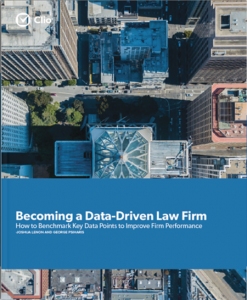 It’s easy to think that only certain kinds of disputes involve the litigants’ emotions. But even disputes supposedly only about money involve emotion. Once you understand that, you will be able to better serve your client.
It’s easy to think that only certain kinds of disputes involve the litigants’ emotions. But even disputes supposedly only about money involve emotion. Once you understand that, you will be able to better serve your client.
I was discussing with one of the lawyers at my firm, who handles a lot of employment work, about how frustrated her plaintiff client was at all the resistance the defendant company was showing during the litigation. To the client, it was personal: they had mistreated her to start, and now, in my colleague’s client’s view, they were trying to mistreat her further in the litigation.
Employment is one of those areas of litigation, like matrimonial, and probably landlord-tenant, where it’s easy to assume that the litigants will be driven by emotion. Indeed, the remedies sought in such matters, while almost always involving some amount of money, tend to involve a lot more than just money. More than that, the very disputes are ones where the parties have figuratively or literally lived together and may have developed high emotions towards one another, perhaps for years, before filing a complaint or serving a notice of deposition.
I’ve learned that all litigation is like this. Or, at least, often can be. And to win for our clients, and serve them as counselors, we need to keep this in mind. As a great mediator once put it in a training (when someone asked how many of the business disputes he mediated involved emotion): “I’d say around 99%, but it’s probably a bit higher than that.”
Business litigation, which is what our firm focuses on, is supposedly just about money, or perhaps some intellectual property, or the ability to engage (or not) in some business practice. And as a matter of what you must legally prove or disprove, it is about those things.
But not to the litigants; not to your clients. To your clients, it’s about justice. It’s about what is right, what they earned, and what the other guy did.
How does the litigator factor all this in? The better question is: how does the good litigator NOT factor this in?
If we are to serve our clients and win, we need to understand where they are and what matters to them. Understanding that our client is being sued for money, and that she will want to pay as little as possible, is almost certainly not enough to understand her. Instead, we need also to understand how frustrated she feels that someone that your client once worked with, employed, trusted, or even loved is now saying that your client is bad and owes them.
Understanding this emotional element helps us understand what is really motivating the client in the litigation. That in turn helps us counsel the client. If you show this understanding, the client will listen to your advice. Perhaps your advice would be exactly the same as it would if you did not show this understanding. But, I promise you, your client will be that much more willing to listen to you if you show this understanding.
Understand the client and his or her emotional needs, and you can better serve and win for the client.
John Balestriere is an entrepreneurial trial lawyer who founded his firm after working as a prosecutor and litigator at a small firm. He is a partner at trial and investigations law firm Balestriere Fariello in New York, where he and his colleagues represent domestic and international clients in litigation, arbitration, appeals, and investigations. You can reach him by email at [email protected].














